The tiny living room of Syed Akhtar Hussain’s rented apartment in Karachi’s Gulshan-e-Iqbal neighbourhood was filled with tangible memories — photographs, trophies and books. When entering the drawing room, one would first notice a large photo frame hung on the wall across the door. The photograph of five inseparable brothers clung tight onto one another meant “the world” to the 70-year-old retired banker. Hussain spends most of his time in this small room, remembering his eldest son — Syed Ali Rehbar, who was wearing a blue kurta in the photograph.
Rehbar was a gig worker. He was shot dead by street criminals in March 2024 when riding his motorbike on the Jauhar Chowrangi flyover during the Islamic month of Ramadan. The 38-year-old was among the 104 people who were killed during the city’s rampant street crimes throughout last year. Some were gunned down for resisting to give away their hard-earned money, others were shot dead for refusing to hand over their smartphones, bikes and cars. The number, issued by the Karachi Police Media Cell following a presser by the Karachi Additional Inspector General of Police Javed Alam Odho recently, reflected the latest data, but it not only represents the crime that continues to terrorise Karachi’s citizens but also signifies the pain of the 104 families that remain traumatised for life.
“Ali Rehbar was married. He had two sons and a daughter. His eldest is 10 years old and studies in the fifth grade. The daughter is five and the younger son is aged two,” Hussain told Geo.tv while pointing at his grandchildren. As their grandfather spoke of the tragedy that struck the family, Rehbar’s children played around the house oblivious to their loss.
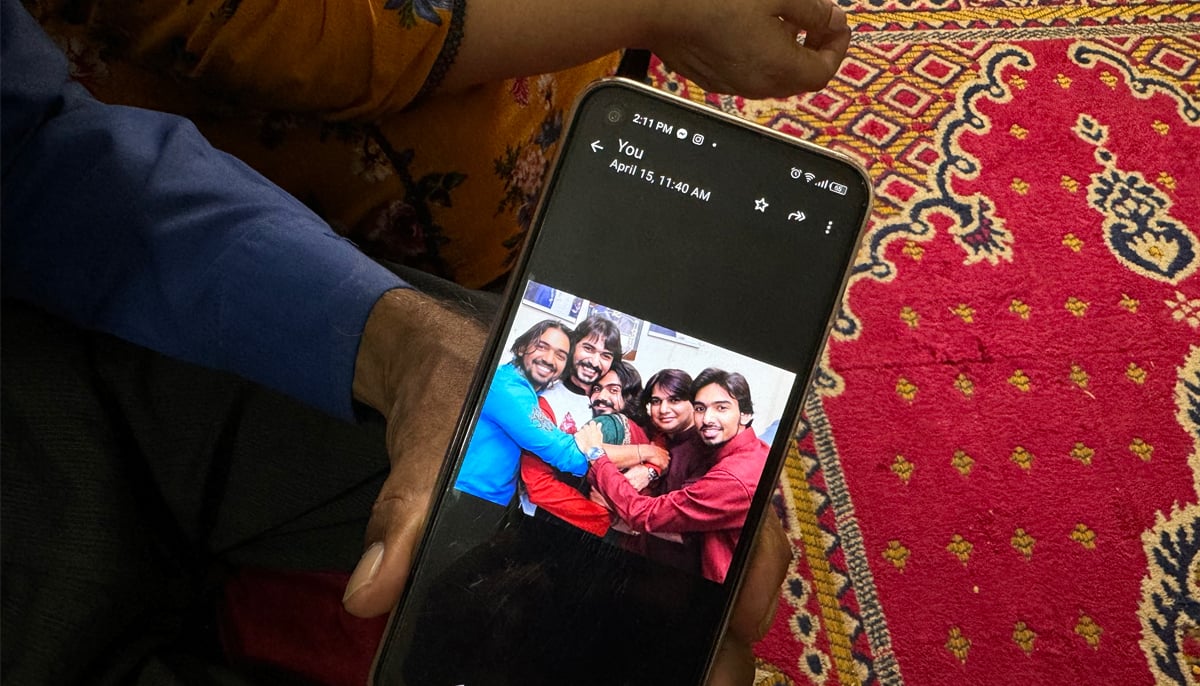
Hussain said his son left home around 1am to do his night shift as a food delivery rider. The septuagenarian revealed that Rehbar had also invested in a fruit stall at the Jauhar Chowrangi in Ramadan and hired help to sell them.
“He had no experience selling fruits and was facing loss in the business. That day, he sold his bike in which he had a fruit carrier installed. I have a feeling that he was returning home with the same money that night,” said Hussain.
The grieving father said his son received four bullets. While one just brushed off him, the others claimed his life. His mobile, he added, was recovered by the police from one of the dacoits who was later killed by an angry mob. Just days after Rehbar’s killing, his family, carrying their fresh wounds of grief, held a protest against the merciless murder, demanding that his murderers be arrested and brought to justice.
‘My world shattered’
On the night of March 4, Muhammad Laraib — a 22-year-old business administration student who helped his father manage their automobile workshop — was shot dead by street criminals not far from his home in Korangi, which falls in the jurisdiction of the Shareefabad police station. His father, Muhammad Hussain, said he did not allow his children to leave the house at night and never expected that anything like this could happen to his family.
“Hardly two minutes after he stepped out of the house, he was shot. My younger son, who was offering Isha prayer, left the house to check what had happened. A child in the neighbourhood rushed to our home yelling, ‘He has been shot’,” the wailing father told Geo.tv after losing his eldest son to the city’s worsening state of law and order.
The 49-year-old said he was at the train station leaving for Hyderabad to attend a relative’s funeral when the incident happened but rushed to the Jinnah Postgraduate Medical Center (JPMC) as soon as he got the news. “When I reached Jinnah Hospital, my world had already shattered. They had placed a shroud over my son,” Muhammad said, sobbing heavily while recalling the ill-fated night.
Laraib’s father described that the police cooperated following their loss, but questioned how any cooperation and consolation would bring his son back, as he lamented the lack of progress in getting hold of the criminals.
“Ever since my son’s death, the police took action in our area. Earlier, it seemed like a den for dacoits,” said Muhammad regarding security in his neighbourhood.
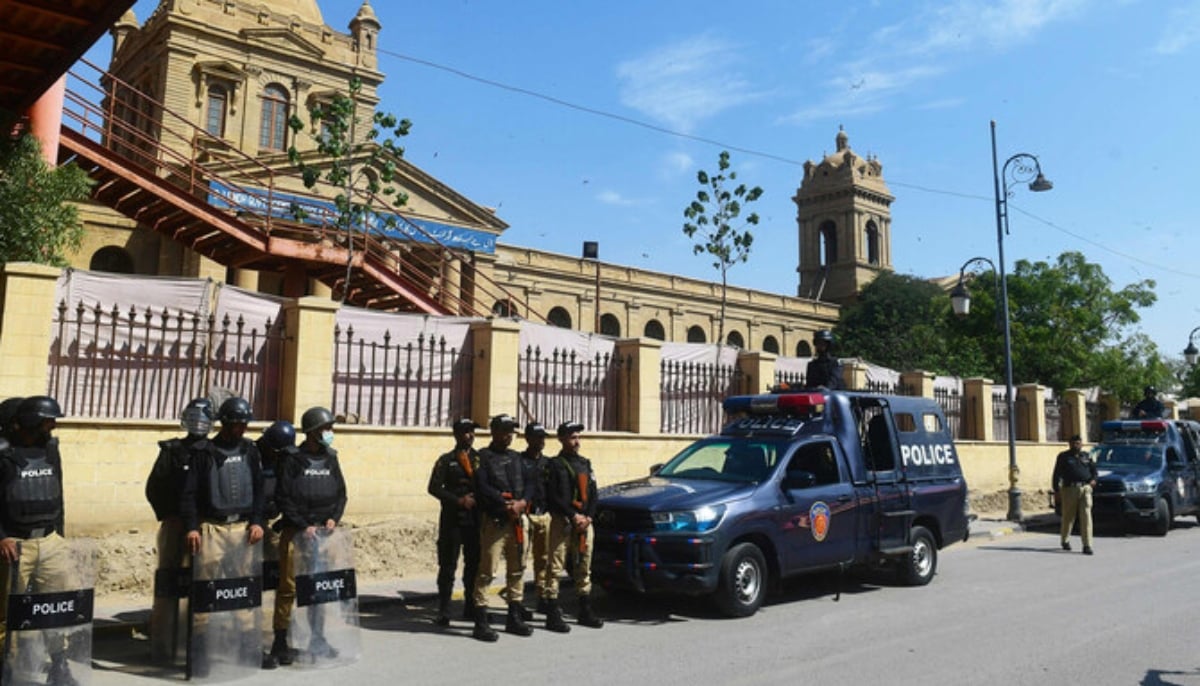
Accepting the loss was challenging for the family. “We all left [this world] with him. I don’t have more words to describe it,” said the father, in a grief-stricken voice, when detailing the impact of trauma endured by the family. He said it was impossible for the family to talk about Laraib, especially in front of his mother, Syeda Rizwana, who remains traumatised by his sudden passing.
“I’m a father, so I try to convince myself. But his mother is having a hard time accepting the reality.” In a month’s time, Laraib’s mother has gotten weak with wrinkles more evident on her face mourning her son’s loss, described Muhammad.
Muhammad Shahzeb, the 22-year-old’s brother, lamented the lack of progress in arresting Laraib’s killers. “Even though my brother’s case received a lot of attention. There is no progress as such because the evidence, as per the police, was really limited.”
He highlighted that the lack of local police officers, who understand the dynamics of the area and city better, is one of the major reasons why street crimes in Karachi remain rampant.
‘Things will never be the same’
In June 2024, Itteqa Moeen Khan — a 27-year-old mechanical engineer who was celebrated for his exceptional academic record — lost his life at the hands of street criminals when he was close to his home in Gulshan-e-Iqbal Block 7. The suspects shot the young man and fled with his mobile phone, wallet and motorbike. A case was then registered by his brother under the provisions of robbery and murder. It garnered immense media attention and following the authorities’ proactive approach, his killers were arrested within a month.
What followed later, however, turned into a matter of police negligence, as one of the suspects fled from the court when brought there for a hearing. Following snap checking and raids to find the suspect, his rearrest took place in Quetta by the Crime Investigation Agency (CIA). Itteqa’s brother, however, described that “things will never be the same” for his family.
“I’m unable to find words to describe what we went through and how we are coping with this,” said Ibaad Moeen, the 27-year-old’s elder brother. He added that their mother still goes into a state of shock and wonders where her son has gone, while the world of Itteqa’s young wife has turned upside down.
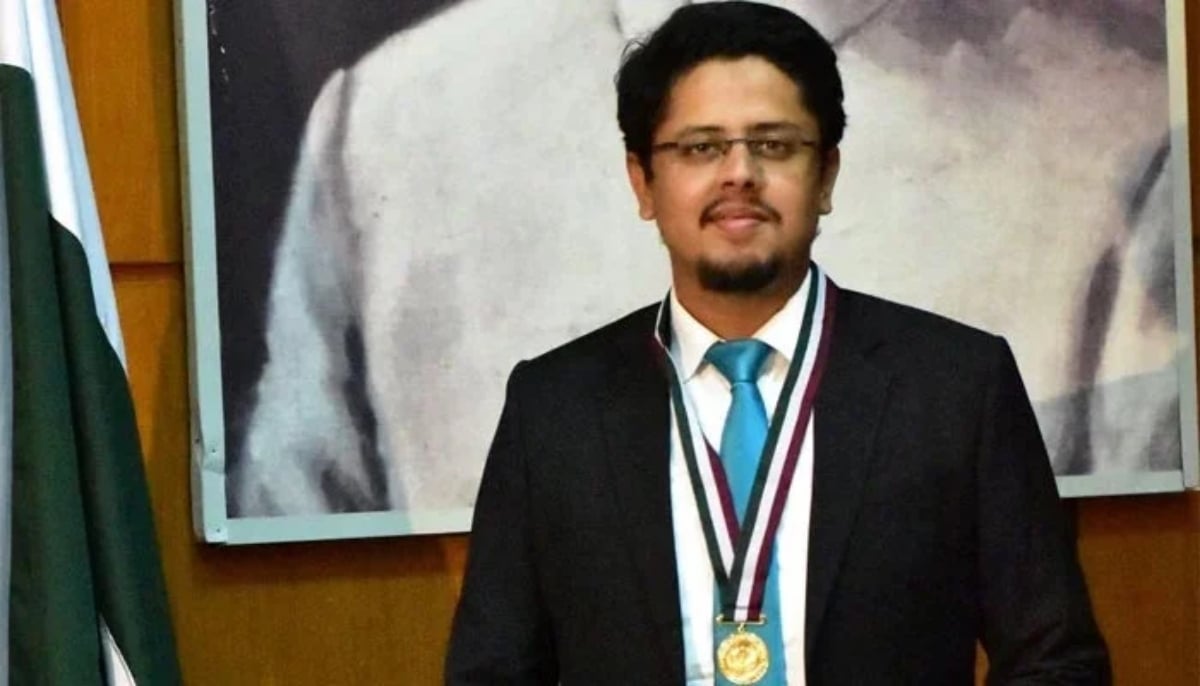
Most Karachi citizens, living with the fear of being robbed of their valuables or being killed on the streets, have taken up measures to ensure their safety. Some avoid carrying smartphones and other valuables, and instead use a spare keypad phone, while others carry weapons for self-defence. Itteqa’s family, too, was equipped to protect themselves, but they increased safety measures following the incident. The brother described that the area where they reside was considered safe with instances of street crimes not so frequent.
When asked what he expects from those responsible for protecting the citizens, Ibaad said following the safety model of gulf countries like the United Arab Emirates, Qatar, Oman and Bahrain would be helpful in curbing crimes in Karachi.
“They are considered as the safest countries to live in. It’s not like there is no crime there. But they have paced up the justice system and if somebody commits a murder, the case would be wrapped up probably within six months or less than that. This instils fear among criminals.”
Leaving behind a traumatised family
Just days after Itteqa was shot, 20-year-old Abdul Basit also lost his life while resisting street criminals last year. His 32-year-old brother Naimatullah told Geo.tv that the incident happened at Korangi’s Nasir Jump where Basit would sell shoes on a roadside cart. The area, he added, is usually bustling with police and Rangers’ check-posts behind the stall in the main market. That night, Naimatullah said, it was slightly calm.
“He was playing games on his phone when the dacoits approached him. When he tried to resist by raising his hand, they shot him instantly,” the brother said, describing the incident. The young man, a native of Killi Nohsar in Quetta, succumbed to the gunshot on his way to the hospital.
Basit received one bullet on his chest which took his life, while the dacoits with their faces covered fled the scene on a motorbike. Naimatullah registered a first information report (FIR) against his brother’s unjust killing and later transported the body to be buried in their hometown. “We are traumatised and grieving after losing our young brother,” he said, adding that his mother did not speak for 20 hours when she found out about her youngest son’s demise and kept asking, “Where is my Abdul Basit?”.
‘Lack of speedy justice’
Cases involving the unjust murder of citizens by criminals warrant immediate redressal by the judiciary. Criminal and civil cases, including those related to street crimes, are pursued under the Code of Criminal Procedure (CrPC) in trial courts where evidence is recorded before a magistrate.
Commenting on the progress regarding his brother’s case, Ibaad said he was satisfied with the performance of law enforcement agencies. The role of the justice system, however, was worrying for the family. “The delay is from the justice system and we are very well aware of how it works. But obviously, somebody has to pursue them. We are still trying to figure out how we can put up a request to speed up the case.”
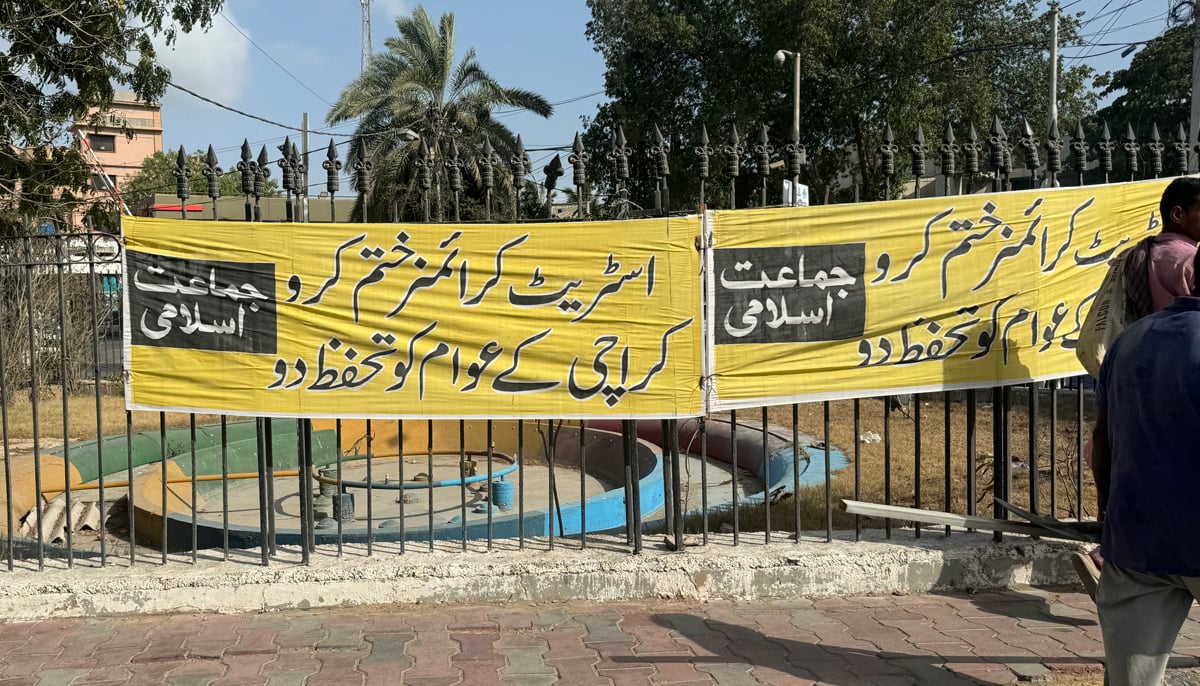
Why redressal is slow and often unfavourable towards victims in such cases? Advocate Muhammad Farooq maintained it is very easy to blame the judiciary in such cases, even though it is important to address the root cause.
“In cases related to street crimes, many people don’t get the FIR registered, while people who are robbed are hesitant to testify before the court. Those who register the FIR, do not follow up on their case. Lastly, the police conduct a very poor investigation,” said the lawyer, adding that it is crucial to investigate the incident at the crime scene and collect concrete evidence, rather than going ahead with it without any proof.
According to Farooq, if criminals are arrested, they are not brought forward for an identification parade. “Instead, the police say that the suspect has confessed to the crime. But such a confession holds no legal value unless the suspect issues a statement before a magistrate.”
The lawyer contended that many aspects in such matters are overlooked at the probing stage, which benefits the suspect and they are eventually acquitted by the court. The judiciary, he added, operates on the basis of evidence; therefore, the acquittals don’t take place due to any flaw in the judicial system.
“If sufficient evidence is provided, punishments are issued to those who committed the crime,” said Farooq, adding that arresting a suspect is not enough for conviction, solid proof is as crucial as ensuring proper redressal. Sharing a rough estimate of redressal in cases of street crimes, the lawyer admitted that in at least 80% of such matters, the accused individuals are acquitted, as no concrete evidence is provided against them.
Living with fear
Many families in the city have lost their loved ones to street crimes, while others continue to live in fear of being the next victims. Most citizens claim that no street in the metropolis is safe, as they remain vulnerable to street criminals even in the midst of bustling markets and broad daylight. The month of Ramadan last year was one of the deadliest after an extraordinary surge was observed in killings due to street crimes.
“Crime patterns ebb and flow, and particular periods such as Ramadan may drive people towards criminality, at times out of lack of options. Given the cost of living, inflation, and lack of job opportunities for many people in the city, turning to crime is a matter of survival and not always greed,” said Zoha Waseem, an assistant professor at the University of Warwick’s sociology department and co-coordinator for the Urban Violence Research Network (UVRN).
Waseem — whose research entails politics and sociology of policing and security in Pakistan — added that since Karachi is a financial hub of the country, criminals who are more opportunistic find their space in this city.
Living in a megacity like Karachi, therefore, is no easy feat. Finding ways to survive the city with the threat of losing one’s life is part of every Karachiite’s daily routine. Meanwhile, incidents where people lose their lives due to street crimes continue to be broadcast and published in the media frequently, adding to the mental trauma of protecting oneself during daily commute and movement in the city.
Mahshid Fatima, a 22-year-old student and media professional, was mugged at gunpoint in Karachi’s Gulistan-e-Jauhar area twice when walking to her home at night. The muggers snatched her smartphone, purse and other valuables.
“The first time it happened was in 2022. I was with my sister. Then, I was again robbed in April last year when walking home with my mother. Both times, the incidents took place in Jauhar,” said Fatima, who registered a complaint with the police after both incidents.
She maintained that following her two-time ordeal of being mugged by street criminals, she no longer has faith in the city’s law enforcement department. “An IO was supposed to contact me after I registered an FIR, but nothing like that happened,” she complained.
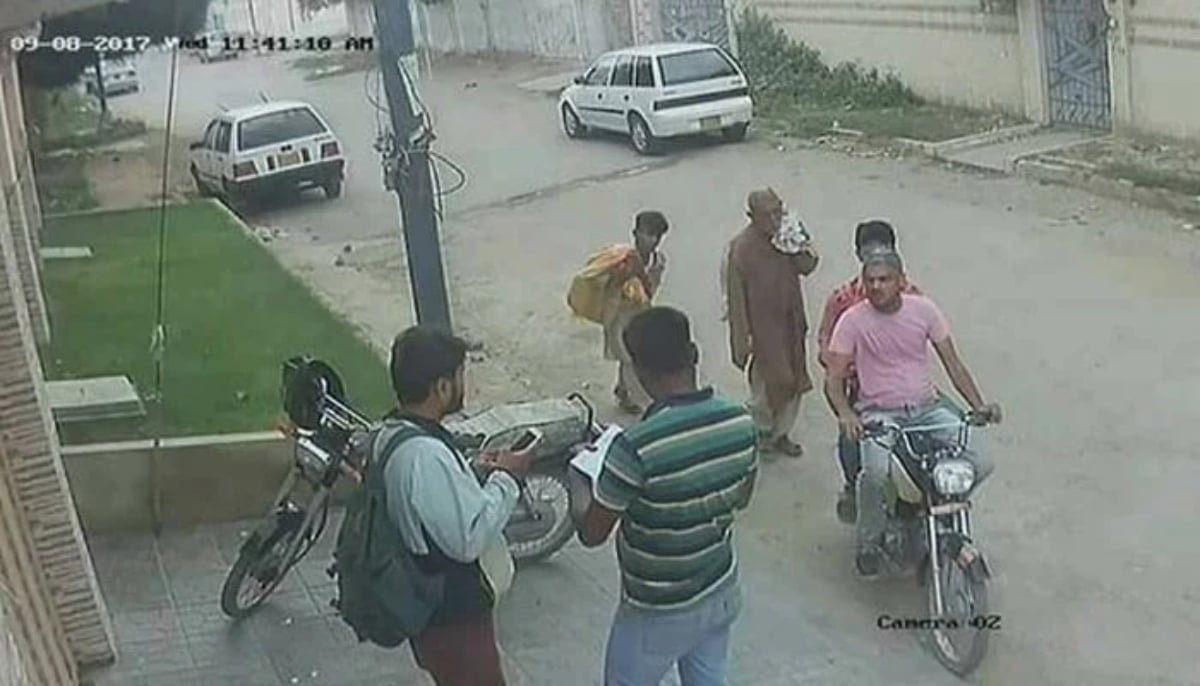
Pervez Jamro — a 36-year-old resident of Gulshan-e-Maymar — has survived several mugging attempts in the past decade. The first instance dates back to 2005. Jamro — an educationist, social worker and journalist — was mugged near the Khadim Solangi Goth when he was waiting for a bus. Despite not possessing much cash and valuables, he resisted the attempt and survived.
The second time, Jamro was stopped by two men on a bike near Mazar-e-Quaid, as he was walking to find a bus to go back home. After failing to find anything valuable, the muggers slapped him hard and fled. “I was traumatised by this incident.”
He was then mugged in 2008, 2009, and 2010, during which street criminals snatched away hefty amounts of cash as well as smartphones from him. Jamro’s most recent brush with muggers was in 2021 near the Jamali bridge in Gulshan-e-Maymar. During this incident, the social worker again resisted and injured one of the criminals, but eventually surrendered and handed over his brand-new smartphone and cash to them. Following the incident, he registered a complaint with the Citizens Police Liaison Committee, (CPLC) Sindh — a non-political statutory organisation.
“Even after filing all complaints, police don’t do anything. Crime is still rampant. There should be a specific law for this crime, as the punishment for a criminal is much less. A person arrested for theft is punished only for three months. A strict law can reduce these crimes,” said Jamro, adding that relying on the police alone won’t keep citizens safe.
Being a frequent target of street criminals, he now stays vigilant and carries “very little cash” when stepping outside the house. This, however, does not offer a sustainable solution to this unending ordeal that Karachiites are subjected to.
Staggering data
In 2024, the number of people killed in street crimes was quoted as 104 by the Karachi police. The number, which had already climbed to 100 in the month of October, was cited as lower than the 134 recorded in 2023 when street crimes in the city reached 90,000. AIG Odho, in the same month, claimed that a 50% dip in street crimes was documented with police focused on eliminating the menace.
According to the 11-month data available on the CPLC website, at least 68,561 crimes were documented from January to November 2024. January, February and March witnessed 8,200, 7,587, and 7,751 overall crimes, respectively.
The city witnessed at least 26,183 street crimes which comprised the snatching of 18,213 smartphones, 7,711 two-wheelers and 259 four-wheelers. January 2024 was the month when most citizens in the city were deprived of their mobile phones, as street criminals snatched at least 2,305 smartphones, while the least number of phones snatched in the city, 1,368, was interestingly in April when casualties due to street crimes were frequently reported in the media. November 2024 also recorded 1,436 cases of smartphones snatched, while the snatching of 24 four-wheelers and 516 bikes was also documented in the month.
From January to November 2024, as per Karachi police data provided to Geo.tv, the police in its bid to curb crime in the city conducted several encounters during which 633 criminals were arrested, 1,319 were injured and 182 were killed, while the number of cases resolved stood at 1,214. In July, the police arrested 70 criminals — the most throughout the year.
Karachi police quoted 162 as the number of cars snatched, while 3,906 motorcycles and 74 other vehicles were also snatched by criminals.
Peace and policing in a city eclipsed by ethnic and political violence
Karachi is a heterogeneous city and its inflated population is one of the many reasons cited by the authorities when asked why street crimes are so difficult to control. On the other hand, policing in the cosmopolitan — which has been at the centre of ethnic, religious and political violence for decades, particularly during the late 1980s, through the 1990s as well as early and mid-2000s — remains a challenge for successive governments.
“There is only so much law enforcement agencies can do. Their presence can deter criminals but police cannot eliminate crime. Only long-term social, economic and political responses can decrease street crime. Police response can often be heavy-handed. Also, sometimes the police are part of the problem, especially when they collude with criminals, as they often do in Karachi,” said Waseem.
Jaffer Rizvi, an investigative journalist working for the BBC, told Geo.tv that police in Sindh have been “used as a tool to twist the arms of political opponents.” He added, “The thaana (police station) has always been least bothered to curb crimes.”
When Geo.tv, earlier in April 2024, reached out to the provincial Home Minister Zia ul Hassan Lanjar to ask about the long-term strategies to protect citizens, he responded by saying that serious efforts were being made to improve the law and order situation in the province, especially in Karachi. The minister maintained that the top leadership of the PPP directed the provincial authorities to further improve the law and order situation in Karachi and other cities of the province. In May, after the number of street crimes in the city skyrocketed, President Asif Ali Zardari conducted a high-level meeting, alongside Interior Minister Mohsin Naqvi and directed the provincial administration to take strict action against the perpetrators.
With hopes of overcoming street crimes, Lanjar had highlighted his efforts in overcoming the menace . “As the home minister, I have been working for almost a month and a half now and there has been a decrease in street crime over the past week. Action is also being taken against negligent police officers.”
Talking about the recent performance of the provincial government with regards to curbing street crimes, Ali Rashid — a spokesperson of the Government of Sindh — said Karachi is a big city and there is only so much one can do. “We have been very effective. I am not saying that things are ideal, but if you compare it to the beginning of the year, the situation has improved and is under control.”
He stated that the situation was bad when the caretaker set-up was overseeing the city’s law and order. But it began improving after the Pakistan People’s Party (PPP) returned to power after winning the February 8 general elections.
In an interview with Geo.tv, former caretaker home minister Brigadier (retd) Haris Nawaz said he never believed in blaming and counter-blaming. “The PPP government has been in power for 16 years, while the caretaker government came for six months, but we ensured that all [Station House Officers] SHOs and [Deputy Superintendents of Police] DSPs posted in this time must have a clean record and they should be professional.”
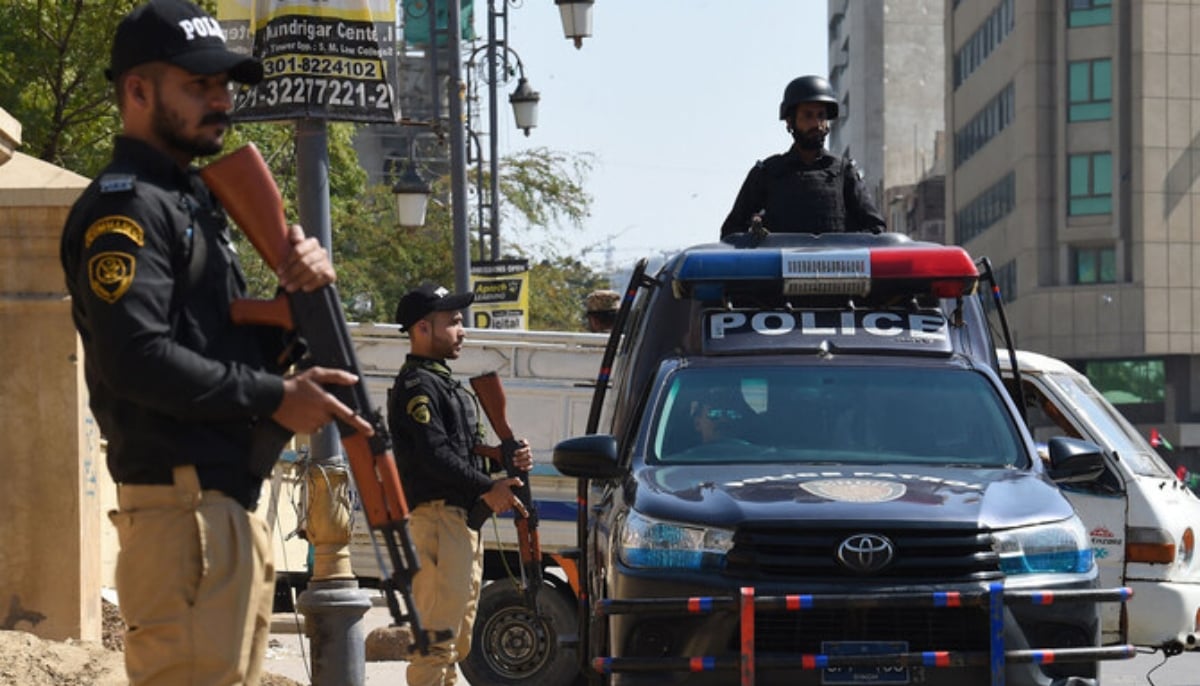
When overseeing the interim home ministry in September 2023, a statement issued by Brigadier (retd) Nawaz regarding saving oneself from being mugged drew ire on social media. The minister said Karachi citizens should keep their phones in “places where they can’t get stolen”. He also faced immense criticism from the PPP Karachi leadership for doing a major reshuffle in the police department before the general elections.
The ex-serviceman said he was tasked to focus on curbing street crimes, among other issues in the city. “I have never posted any SHO, DSP and [Senior Superintendent of Police] SSP during my tenure. I asked the IG to do that. I asserted they will be held responsible if anything goes wrong.”
The reigns of governance in Sindh have remained in the hands of Pakistan People’s Party with the party ruling the province for over 16 years now. Despite its successive tenures, it continues to struggle with managing the city’s law and order situation.
Rashid admitted that street crimes were rampant during Ramadan with media buzzing with news of killings every other day. However, following the Sindh government’s approval, the PPP was dedicated to addressing issues related to the city’s law and order situation. In the previous tenures of the party in Sindh, the home minister’s portfolio remained with the chief minister, but this time around, Rashid added, the government inducted a home minister who is working very hard.
“We have made a routine where we hold all the SHOs and SSPs responsible [for crimes in their jurisdiction].”
Rashid added that the government, under the leadership of Chief Minister Murad Ali Shah, conducts daily briefings and prepares weekly reports, while the Sindh Inspector General of Police, Ghulam Nabi Memon, Home Minister Lanjar, and others have been “very hands-on” to control the situation. “Things will get better with time,” said the spokesperson.
Waseem, commenting on the governance of the city, said that both the Sindh and federal governments “need to do much, much more for Karachi” in terms of development and jobs, among other things. “The negligent and irresponsible way the city has been managed over the past several decades has exacerbated crime and insecurity in the city.”
She maintained that policing, politics, and crime go hand in hand in Karachi and the rest of Pakistan. You cannot secure a city through policing and enforcement responses alone,” she said, emphasising redressal of deeper economic and political grievances.
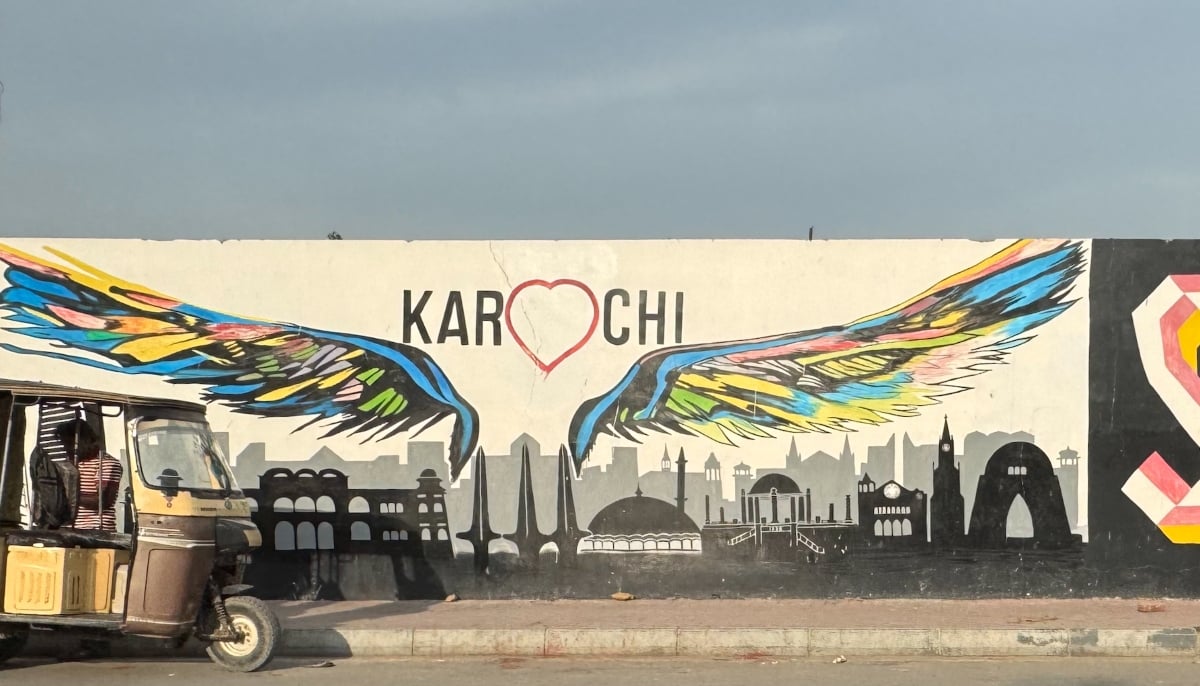
Survival remains fragile in the city, where maintenance of law and order is the primary responsibility of the police, while the deployment of Pakistan Rangers (Sindh) also continues to be extended for their assistance. The Sindh government — after the provincial home department notified a letter — yet again extended Rangers stay in the city until December 8, 2025, to maintain law and order.
When an extraordinary spike was observed in the number of street crimes in Karachi, Sindh High Court Chief Justice Aqeel Ahmed Abbasi also ordered a crackdown on criminals to improve the city’s security situation. Despite the two powerful forces managing the city’s law and order, peace still seems improbable.
In her book, Insecure Guardians, Waseem mentioned that “neither the police nor the Rangers have a monopoly over the legitimate use of force. And by extension, neither can rightfully claim to have a monopoly over the provision of security. Due to this fact, and their ongoing negotiations for acquiring legitimacy for themselves, both have contributed to procedural informality and militarised policing”.
This, she wrote, can be witnessed by analysing the dual policing mechanism at work, which both forces to rely on de facto legitimacy that is acquired over time through informal practices and accepted through the passive consent of the state and society.
Ali Khursheedi, a Muttahida Qaumi Movement-Pakistan (MQM-P) lawmaker and leader of the opposition in the Sindh assembly, in an interview with Geo.tv, emphasised that the lack of surveillance, inadequate police personnel and the posting of non-local personnel are three basic reasons why street crimes in the city were out of control.
Last month, Jamaat-e-Islami (JI) Karachi chief Monem Zafar had also criticised the ruling party in the province for failing to curb street crimes, stating that the city’s residents remain “vulnerable to street criminals”.
The MQM-P following the spike in street crimes last year had suggested the deployment of the military to maintain law and order. Khursheedi, terming the situation “extraordinary”, said: “It was obvious that the police were unable to control street crimes and these situations required extraordinary decisions.”
Brigadier Nawaz, who is a retired serviceman, said he would never recommend using the military for curbing street crimes, as the army should only be protecting the borders, particularly as it engages in counter-terrorism efforts. “This is a huge responsibility.”
The case of ‘illegal’ migrants
A recurring observation made by the caretaker set up as well as the current authorities, in relation to the rise in street crimes in Karachi, pointed towards the presence of illegal migrants in the city. The government had, time and again, mentioned criminal elements within the Afghan settlements, indicating their involvement in rising street crimes in Karachi.
It is, however, important to note that thousands of Afghan migrants were deported to Afghanistan, particularly following the speedy interventions of the interim administration in November 2023 — a move that triggered panic among an already vulnerable community living in abysmal conditions in the city’s densely populated neighbourhoods. The caretaker government as well as those preceding it have been insistent that the deportation of illegal migrants has been vital in maintaining peace in the city.
Brigadier (retd) Nawaz told Geo.tv that the interim government worked towards “illegal immigrants”, too, to curtail crimes in the city. The provincial government’s spokesperson also upheld a similar view.
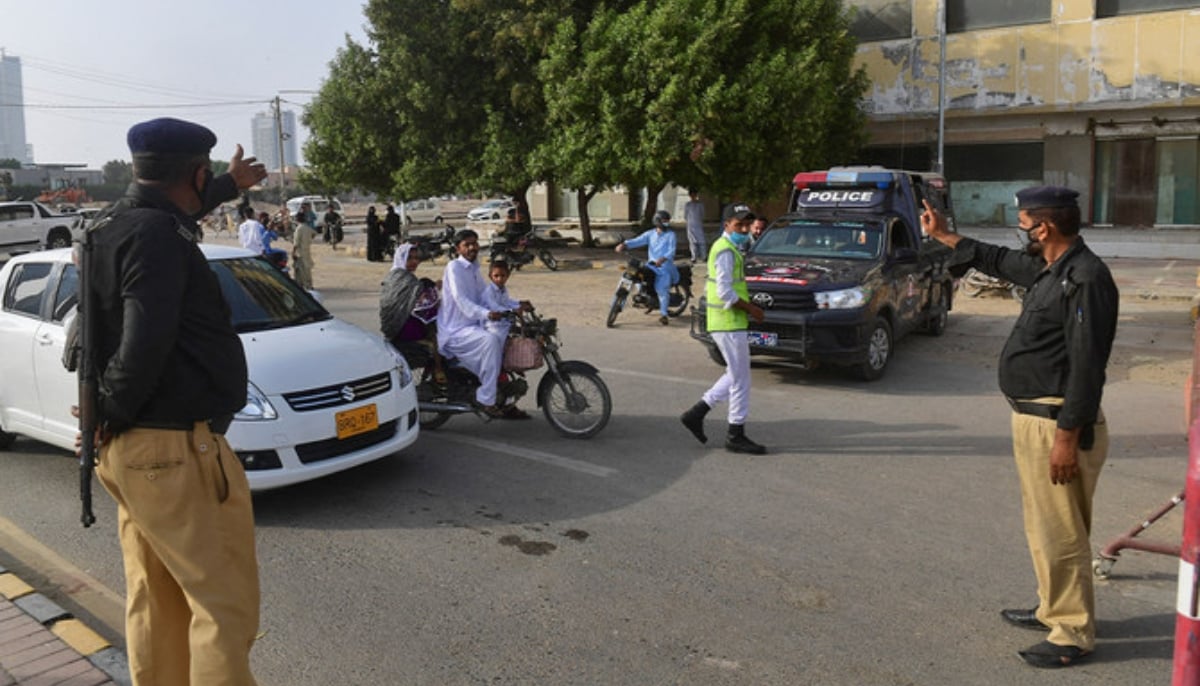
Waseem, however, rejected the notion and termed it “problematic”.
“Such narrative shifts responsibility away from governments and political parties, and their shortcomings, and pins the blame on vulnerable migrant communities. It is a way to create panic around migrants and migration and criminalise refugees, both documented and undocumented,” she said, adding that such views give the government an excuse to remove refugees who are very well settled in the city. “There are many factors behind the rise in urban crime, but little evidence to suggest migrants lead to a surge in crime.”
Role of community policing and Safe City Project
Community policing and neighbourhood watches are often touted as an effective way to tackle street crimes. With regards to the export of community policing to both European and developing countries, a paper published in an Oxford University Press journal Policing in April 2023, maintained that the system “involves a great deal of autonomous working, close collaboration with the public and local agencies, as well as setting priorities based on local need rather than on central police policies”.
Rashid, too, highlighted the need for citizens to be mindful of who is loitering in their neighbourhoods. “Through community policing, people keep in touch with the police. There are neighbourhood committees. People take ownership of the area,” he said, asserting that the public be aware of unknown individuals if criminal activities exist in their neighbourhood.
“We should strengthen the government to counter these issues,” said the spokesperson.
Murad Soni — a businessman and chief of Community Policing Karachi (CPK), a community-led policing organisation working to curb street crimes — said hundreds of “top-quality cameras” have been installed across several areas in the city under the initiative with monitoring handed over to police at more than dozen of its command and control centres. To facilitate controlling crime rates, CPK works in collaboration with the Karachi Police and the Defence Housing Authority (DHA).
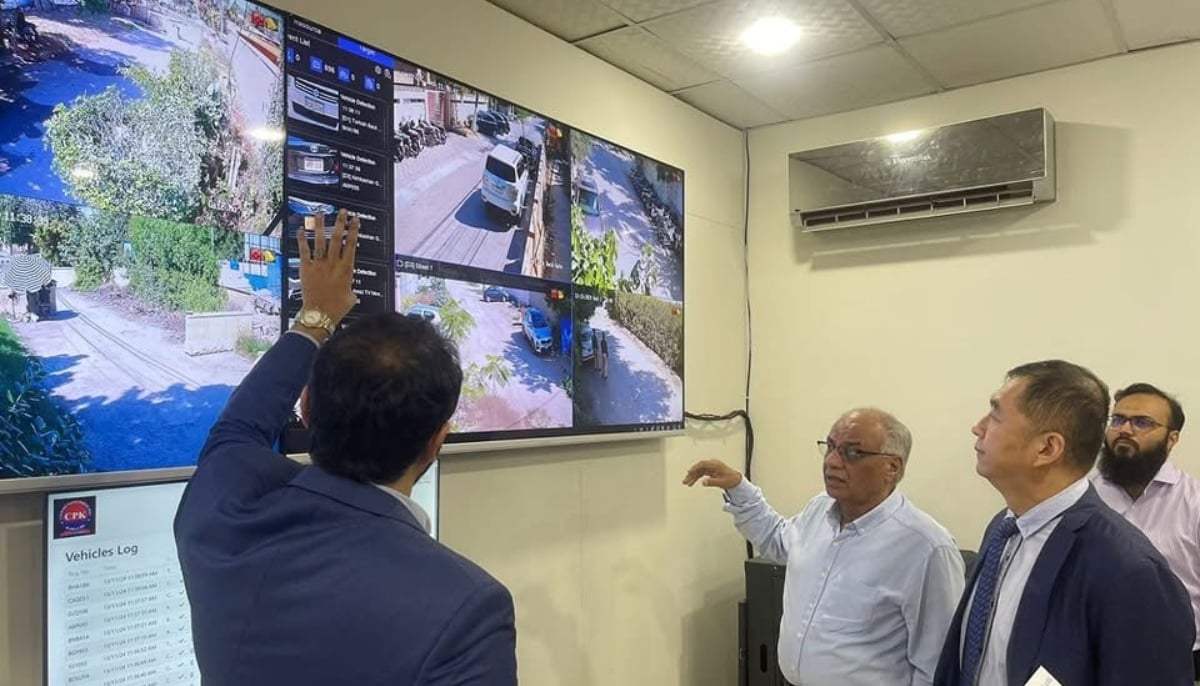
“In all areas where our cameras are installed, at least a 50% to 60% reduction in street crimes has been observed. If a crime has taken place, the criminals have been identified,” Soni told Geo.tv. In June, CPK installed at least 127 high-resolution automatic number plate recognition (ANPR) cameras in the busy Saddar area with support from traders.
Soni maintained that to curtail the menace of street crimes in Karachi, it is crucial to understand the humungous size of the city. He underscored the dearth of sufficient police personnel, stating that each police station has merely 25 to 30 personnel. How is it possible to run a large jurisdiction of a police station with such a smaller number of personnel, the businessman questioned, emphasising the role of modern policing with the help of the latest technology. Following observation through CPK’s command and control centres, the businessman explained that the jurisdictions of at least 40 police stations in Karachi’s district east and central are most vulnerable to street criminals.
Meanwhile, under the Safe City Project in Karachi, the government installed a total of 35,000 cameras across the city. Following the development, real-time monitoring of several key locations in the city was initiated with the Central Police Office (CPO) being transmitted live footage from at least 20 poles. A press release issued by the Chief Minister House stated that the CPO control room and the Sindh Safe Cities Authority (SSCA) was actively monitoring the city with the help of at least 100 cameras with work on the first phase of the project accelerated for safety and security of citizens.
‘No’ to mob justice and need for ‘collective efforts’
The lives of survivors, who are left to mourn after their loved ones, remain devastated and street criminals continue to haunt citizens with little to no faith in the systemic structures of governance. There were instances when citizens took the law into their own hands, heckling criminals as they approached to rob them of their belongings. Mob violence was recorded on videos making the rounds on social media with citizens celebrating the speedy, on-site justice, as an arrest of a criminal would eventually lead to their acquittal, they argued.
“People taking the law into their own hands is not the right way to deal with the situation. If citizens become the punishers, the city will slip out of the government’s hands. It will be at the hands of violence and the law will weaken,” said Soni.
Yasmeen Khanum, Ali Rehbar’s inconsolable mother, questioned the provincial administration’s writ in the city as residents buckle up to look out for themselves. “We are like dogs and cats to them. They don’t care if we die,” she said.
“This trend should now stop,” pleaded his father Hussain.
Itteqa’s brother, on the other hand, maintained that it is through “collective efforts” that this issue can move towards a resolution. “The government cannot work individually. There are law enforcement agencies and the justice system. Unless they all work collectively, the situation is not going to get better.”
Addressing the authorities and those responsible for maintaining law and order in the city, Laraib’s father said: “The state should do all it can to console the survivors of those lost to street crimes. It is the state’s responsibility.”
Brigadier (retd) Nawaz maintained that no solution will be sustainable to curtail crimes as long as there is political influence in the police department as well as the lack of tenure posting, accountability and thorough investigations. “It is the Sindh government’s responsibility to protect citizens and provide jobs to the unemployed youth. If the youth is employed, they won’t commit crimes,” he stressed.
Assuring a better and peaceful future, Sindh Spokesperson Rashid said that the administration wants to proactively work on the issue. “We don’t just want to do a reactive job, like investigate what happened and do something about it… So, God willing, it will be better.”
Rabia Mushtaq is a staffer at Geo.tv. She posts on X @rabiamush
Header and thumbnail illustration by Geo.tv





